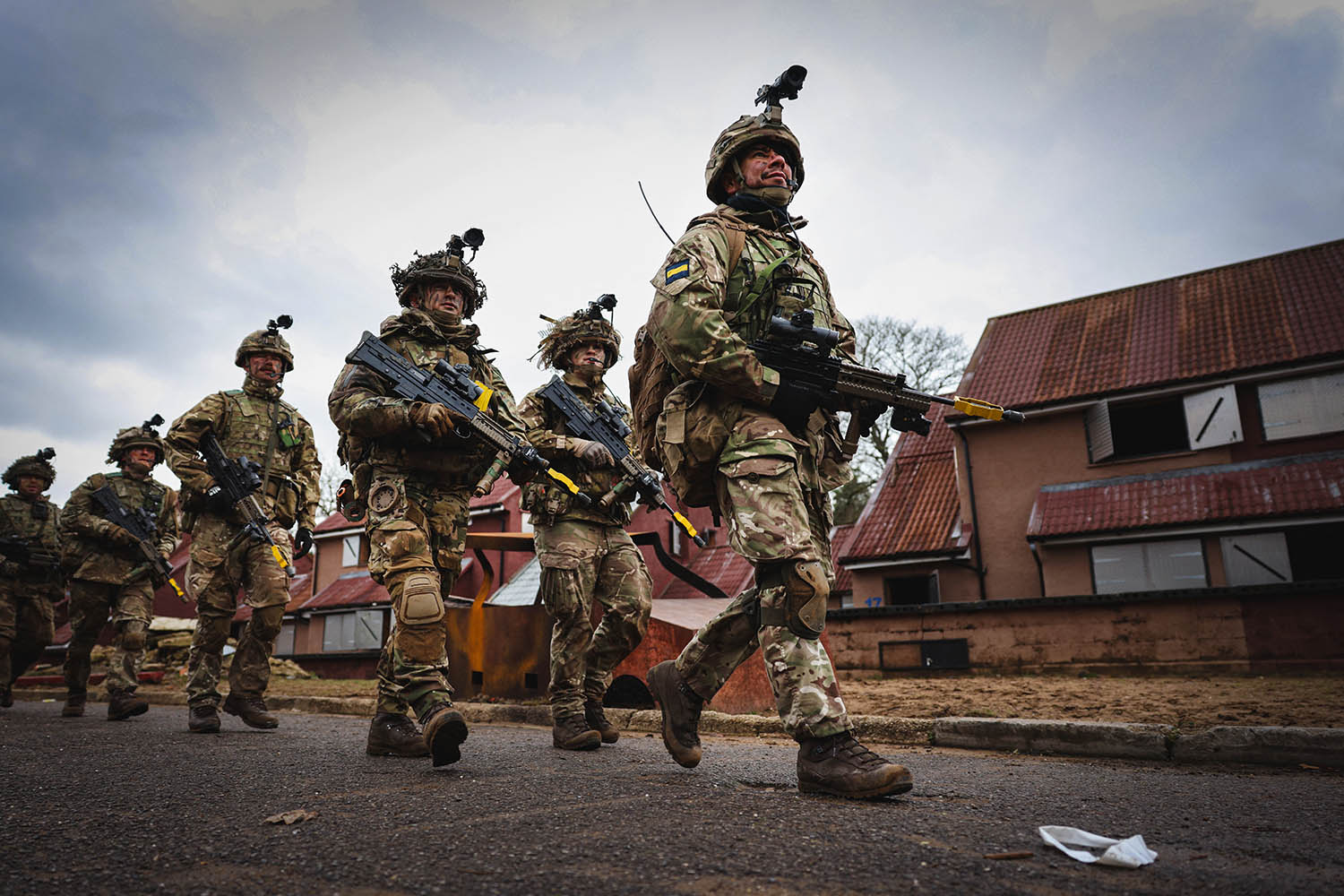The UK’s strategic defence review has a lot to say about military hardware. There are 50 mentions of weapons, submarines appear on 30 occasions, drones crop up 26 times, while there are several references to carriers (16), jets (seven) and tanks (six).
The word “soldier”, though, appears just twice – and the first is in the introduction describing one of the report’s authors.
The omission highlights a problem facing militaries all over the world: governments want to spend more on defence, but not enough people want to be soldiers. In Britain, the number has fallen from 80,000 regular forces in 2022 to below 73,000 today; in the US, it’s dropped from 2.1 million at the end of the cold war to 1.3 million today.
It’s true that part of the reason for falling numbers is falling budgets; true, too, that “personnel” gets more mentions in the UK report than “soldier”. But the fact remains: faced with the rising threat of Russia, central and eastern European nations are desperately trying to boost their numbers. Germany’s defence minister said last week that the Bundeswehr needs an additional 50,000-60,000 troops, for instance, and the Polish prime minister, Donald Tusk, has proposed that every man in the country receives military training.
In Australia, meanwhile, the government is offering cash A$40,000 bonuses for army personnel, and in the US the problem is so acute that a course has been created in its Future Soldier initiative that allows overweight teenagers to sign up.
Why do so few people want to be soldiers? Ask senior military officials and one of their main gripes will be communication. If only there was a better advertising campaign, a Hollywood film that made the armed forces appear glamorous, or perhaps a few army influencers on TikTok, then recruitment wouldn’t be such a struggle.
That argument might hold water if this was a problem limited to one country. “Pretty much all western armed forces are struggling in this regard,” said Paul O’Neill, a senior associate fellow at the Royal United Services Institute. “It can’t be every armed force in the world is bad at communicating.”
Part of the problem is that lots of militaries make it difficult to join. There are rules on height, weight, fitness and health – not all of which make sense. If you’re a cyberwarrior, does your asthma diagnosis really matter? Then there is the bureaucracy. In the UK and Australia, for example, the recruitment process can take up to a year.
Even if militaries do recruit enough people to boost their numbers, there is a retention issue – more people are leaving than joining.
It’s not the adverts that are the problem – it’s the reality. Being a soldier is not an easy job. For a start, it’s badly paid. The starting salary is £25,200, which is also the national minimum wage. By comparison, a teacher in the UK England star ts on £32,916. It also comes without the big perk anyone working in an office has enjoyed since the pandemic: not working in an office. The RAF doesn’t WFH.
Newsletters
Choose the newsletters you want to receive
View more
For information about how The Observer protects your data, read our Privacy Policy
More seriously, the UK military’s treatment of women and ethnic minorities is “morally repugnant”, said O’Neill. The case of Royal Artillery gunner Jaysley Beck, who was found dead in her barracks in Wiltshire in December 2021, has badly damaged the army’s reputation. She took her own life after being sexually assaulted by a senior sergeant. The inquest earlier this year found the army’s failure to take action contributed to her suicide. “It sends a message to entire cohorts of people,” said O’Neill: “If you join, this is your lived experience.”
Finally, there’s the obvious reason why few people want to be a soldier: you may be killed. When I left school in the late 1990s, some of my classmates joined up. It was post-cold war, the Troubles in Northern Ireland were over and the most dangerous place you could be sent was a relatively benign peacekeeping mission in the Balkans.
But for the past two decades that hasn’t been the case, and while the UK today is not directly involved in any large conflicts, the reason why defence spending is increasing is because we think we will be. We want to spend more on defence because the world is a more dangerous place, but fewer people want to become soldiers because the world is a more dangerous place.
There are huge questions around the sudden rush to dramatically increase the amount of money western nations are spending on defence, most notably the fixation on the amount itself. In no other policy area do we judge our success on what we spend rather than on what that money produces.
Greece now hits the new arbitrary target of 3.5% of GDP but much of that goes on military pensions. If the Russians invade, it’s questionable whether a retired navy captain in Crete will be of much use.
But if governments truly believe they need stronger armed forces, investment in military hardware is not enough. It’s time they made the job of soldier more attractive.
Photograph by ADRIAN DENNIS/AFP via Getty Images

